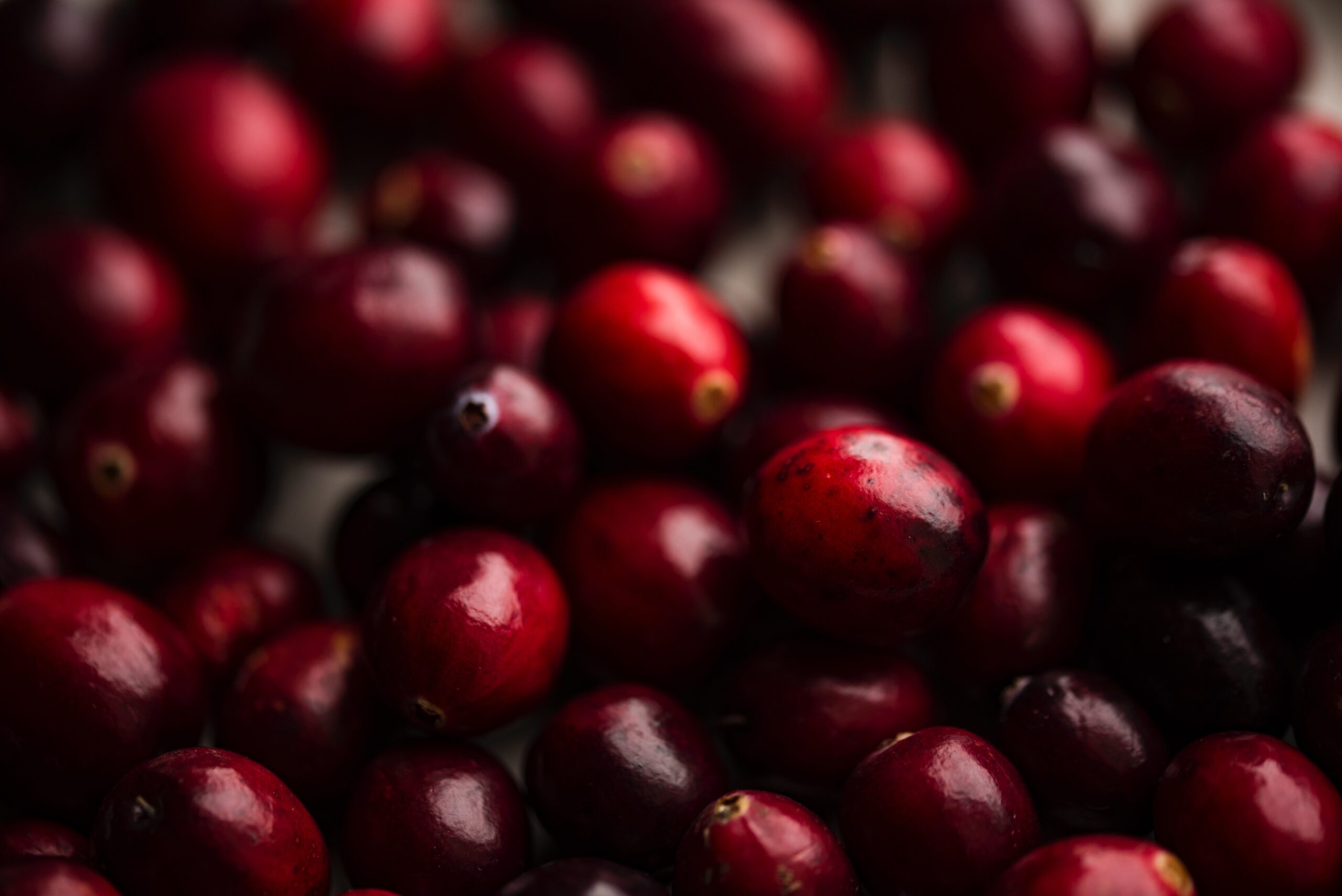Hey Ollie blog readers! We’re offering you an exclusive 60% OFF your starter box! Try now!
Cranberries are packed with antioxidants and often praised for their health benefits—but can dogs eat cranberries safely? The short answer is yes, dogs can have cranberries in small amounts. These tart red berries can support your dog’s immune and urinary health, but only if served properly. While they’re not toxic, there are some important things to consider, including the form they’re served in (fresh vs. dried) and added ingredients like sugar or preservatives. In this guide, we’ll break down the benefits, potential risks, and how to safely add cranberries to your pup’s diet.
Can Dogs Eat Cranberries?
Yes, dogs can eat cranberries. When served plain and in moderation, cranberries are a safe and healthy treat for most dogs. They’re not toxic and are even included in some commercial and fresh dog food formulas. Cranberries are rich in antioxidants, vitamin C, and fiber, offering gentle immune and digestive support.
But—and this is important—not all cranberry products are dog-friendly. The form, portion, and preparation method matter just as much as the fruit itself.
Cranberry Forms That Are Safe vs. Unsafe for Dogs
Safe:
- Fresh cranberries, raw or lightly cooked (plain)
- Plain, unsweetened dried cranberries (in small amounts)
- Homemade cranberry dog treats (with no toxic ingredients)
Not Safe:
- Cranberry sauce (typically contains sugar, spices, or raisins—dangerous for dogs)
- Cranberry juice (usually sweetened and may include grape juice or artificial additives)
- Any cranberry product with xylitol, an artificial sweetener that is toxic to dogs
- Trail mixes or baked goods that contain cranberries and chocolate, raisins, or nuts
Always check ingredient labels. Even small amounts of xylitol or raisins can be dangerous.
Potential Health Benefits of Cranberries for Dogs
Cranberries aren’t just a tart holiday treat—they actually offer real health benefits for dogs when served properly. Packed with natural antioxidants, vitamins, and fiber, cranberries may help support your dog’s immune system, urinary tract health, and even dental hygiene.
According to PetMD, cranberries are high in fiber and antioxidants, which help support your dog’s immune system and reduce inflammation.
While they shouldn’t replace core ingredients like protein or vegetables in your dog’s diet, cranberries can be a smart functional add-on in small doses.
1. May Support Urinary Tract Health
Cranberries are best known for their potential role in promoting urinary tract health. They contain compounds called proanthocyanidins, which may help prevent certain bacteria—like E. coli—from sticking to the lining of the bladder. This may reduce the risk of urinary tract infections (UTIs), especially in dogs prone to them.
Note: Cranberries are not a treatment for active UTIs. Always consult your vet if your dog shows signs of infection, like frequent urination or accidents indoors.
2. Rich in Antioxidants
Cranberries are loaded with antioxidants, including vitamin C, quercetin, and flavonoids. These compounds help neutralize free radicals in the body, reducing inflammation and oxidative stress. This is especially important for:
- Senior dogs with joint issues or cognitive decline
- Dogs recovering from illness or surgery
- Dogs exposed to environmental toxins (e.g., pollution, smoke)
3. Supports Healthy Digestion
Cranberries provide soluble and insoluble fiber, which can help regulate your dog’s digestion. Fiber supports the growth of healthy gut bacteria, helps improve stool quality, and may even aid in managing mild cases of constipation or diarrhea.
That said, too much fiber at once may cause gas or bloating—so moderation is key.
4. May Help with Dental Health
Emerging research suggests that cranberries may help reduce the buildup of plaque and tartar by interfering with bacteria in the mouth. While they won’t replace regular brushing or dental chews, a few cranberries here and there may offer an added boost for your pup’s oral hygiene.
5. Brain and Immune Support
The antioxidants in cranberries may also benefit cognitive health and immune response, especially in aging dogs. Vitamin C helps support healthy immune cells, while polyphenols may reduce inflammation linked to degenerative conditions.
Cranberries offer more than just color and crunch—they deliver real, science-backed nutrients that may benefit your dog’s health. From supporting urinary health to boosting immunity, these berries pack a lot of value into a tiny package.
Just remember: cranberries should be served plain, without sugar or additives, and only in small amounts. And they’re most effective when included as part of a balanced, nutrient-rich diet—like Ollie fresh food, which is made with real, whole ingredients.
See how Ollie keeps dogs healthy with fresh, functional foods

Are Cranberries Good for Dogs?
Cranberries are often dubbed a superfood for humans, and in moderation, they are great for your dog’s health too. Raw or lightly cooked cranberries contain more than two dozen antioxidant phytonutrients that help reduce oxidative stress, thereby boosting your dog’s immune system and decreasing inflammation. Cranberries are low in sugar, high in fiber (which encourages good digestive health), and a good source of vitamin C and potassium.
An antioxidant-enriched diet makes for a healthy dog. One study in Neuroscience Biobehavioral Review found that a diet rich in antioxidants helps older dogs stay mentally sharp, possibly proving that antioxidants help stave off brain aging in dogs. Another study in Vet Medicine showed that antioxidants improve short-term memory performance in aging beagles.
The benefits of cranberries for dogs is why Ollie adds study in cranberries in their natural form to its human-grade dog food. The Fresh Lamb with Cranberries recipe combines cranberries with other nutrient-rich ingredients like lamb heart, kale, and butternut squash.
Can Dogs Eat Dried Cranberries?
Dogs can eat raw cranberries, but what about dried cranberries? For the most part, dried cranberries are safe for dogs. However, it’s best to purchase the natural, unsweetened variety. The sugar and preservatives in some popular dried snacks like Craisins aren’t healthy for your pup and can lead to an upset stomach.
Can Dogs Eat Cranberry Sauce?
A staple of the Thanksgiving spread, cranberry sauce isn’t a healthy choice for dogs. The high sugar content can lead to diarrhea and in the long-term may cause cavities and weight gain. But if your dog just happened to eat some jellied cranberry sauce, don’t sweat it! In its pure form, it’s not poisonous for dogs. However, check the recipe or packaging to ensure that it doesn’t contain raisins, grape juice, or the artificial sweetener xylitol, all of which are highly toxic.
Tagged As:

The nutrition your dog needs,
the food they want.

Enjoying our articles? Subscribe our Newsletters and get new articles directly to your inbox
You might also like
26 August 2025
4 MINS READ
Is Fresh Dog Food Safe?
If you’re thinking about switching your dog to a fresh food diet, you might be asking yourself: “Is fresh dog food safe?” It’s a smart question—because feeding fresh means you’re worki…
by Ollie Pets
26 August 2025
4 MINS READ
How Do I Know How Much Fresh Dog Food To Feed?
If you’ve switched your pup to fresh food, you’re probably wondering: “How much fresh dog food should I feed?” It’s not as simple as scooping kibble from a bag—fresh food is more nutri…
by Ollie Pets
26 August 2025
4 MINS READ
Do I Need To Cook Fresh Dog Food?
If you’ve just started exploring fresh dog food, you might be wondering: “Do I need to cook it?” or “Is it raw or already cooked?” It’s a common question, especially with so many pet f…
by Ollie Pets







